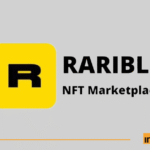The year 2025 stands as a defining moment for the crypto industry. Over the past decade, blockchain adoption has steadily grown, bringing with it an increasing demand for transparent, secure, and more user-focused trading platforms. While centralized exchanges have played a critical role in making cryptocurrency trading mainstream, the shift toward decentralized exchanges (DEXs) is now gaining undeniable momentum. At its heart, this shift reflects growing user concerns over trust, custody of assets, transaction speed, regulatory compliance, and long-term sustainability.
For businesses considering building blockchain-based solutions, one of the most promising opportunities today lies in Cryptocurrency Exchange Development Services. More specifically, those focusing on decentralized crypto exchanges in 2025 are uniquely positioned to tap into the evolving digital economy, where users are placing stronger demand for independence, freedom, and true peer-to-peer trading experiences.
This blog will explore the top benefits of creating a decentralized crypto exchange in 2025, explaining why this is not only a smart business move but also an innovation that directly addresses the concerns of contemporary crypto traders and investors. The content is designed for business owners, entrepreneurs, and organizations who want to understand the strategic advantages before partnering with an exchange development company.
What is a Decentralized Crypto Exchange?
A decentralized crypto exchange, or DEX, is a peer-to-peer marketplace where users can directly trade cryptocurrencies without involving intermediaries or third-party custodians. Unlike centralized platforms where a company acts as the central authority to facilitate transactions, DEXs operate through automated smart contracts deployed on blockchain networks.
This self-executing system allows individuals to trade directly from their crypto wallets while retaining complete control over their private keys and funds. The absence of custodians and reliance on blockchain’s security principles makes decentralized exchanges one of the most trusted innovations for financial autonomy.
Centralized vs. Decentralized Exchanges: Key Differences
To understand the importance of creating a decentralized exchange, it is useful to draw comparisons with centralized exchanges (CEXs). Centralized exchanges hold custody of user assets and act as a broker in every trade. They manage order books, execute trades, and provide liquidity — but this comes at the cost of custody risk, higher security concerns, and entry barriers for various tokens.
Decentralized exchanges, on the other hand:
- Eliminate custody risk (users hold their own keys)
- Operate using automated smart contracts
- Typically have lower listing barriers for new tokens
- Prioritize peer-to-peer trading
Such differences underpin why the crypto world increasingly values decentralized systems in 2025.
Growing Global Demand for Decentralized Platforms in 2025
The global digital economy is maturing. With millions of new crypto users expected to join trading markets in 2025, the demand for safer custodial solutions has grown louder. Rising cyber-attacks and exchange hacks have also reinforced distrust in centralized models.
Moreover, recent advancements in blockchain scalability and interoperability have made decentralized exchanges faster and more cost-effective than ever before. Governments worldwide are continuing to clarify regulations, and while compliance challenges remain, the decentralized trading market is steadily gaining official recognition.
Top Benefits of Creating a Decentralized Crypto Exchange
Greater Control Over Assets
DEXs allow users to hold their crypto assets directly in personal wallets, reducing dependency on external systems that could be compromised. Users maintain full sovereignty over their assets.
Reduced Risk of Hacking and Data Theft
By eliminating central custodians, DEXs reduce the impact of large-scale hacks. Since traders do not need to deposit funds into centralized hot wallets, the attack surface is significantly minimized.
Increased Transparency
Smart contracts govern transactions on DEXs, meaning every transaction is visible and recorded on the blockchain. This transparency builds stronger user trust.
Privacy-Oriented Trading
Most decentralized systems do not require intensive KYC verification for basic trading activities. While regulatory adjustments may apply in some regions, the inherent design supports privacy-friendly transactions.
Borderless Access and Inclusion
People in regions without access to reliable centralized exchanges can still participate in the global trading ecosystem using DEXs. This universal accessibility broadens the user base for exchange operators.
Lower Transaction Costs
Without intermediaries managing transactions, trading fees on decentralized exchanges are often lower than what centralized platforms demand. Layer-2 protocols further reduce operational costs.
Resistance to Censorship
Since decentralized exchanges operate on distributed networks, it is extremely difficult for any single entity or authority to shut them down. This makes them resilient and sustainable over the long term.
Flexibility with Token Listings
Centralized exchanges set high barriers for token listings, often with substantial fees. With DEXs, businesses and projects enjoy faster listing opportunities, encouraging innovation and community-driven ecosystem growth.
Strong Community Engagement and Trust
Many successful decentralized exchanges thrive on community participation because governance is often vested in token holders. This engagement builds long-term loyalty and participation.
Scalability with Layer-2 and Cross-Chain Technology
As blockchain technology improves, decentralized exchanges now integrate multi-chain support and Layer-2 solutions. This enables smooth, fast, and affordable trades across diverse blockchain ecosystems, solving earlier user experience issues.
Business Perspective: Why Entrepreneurs Should Consider DEX Development in 2025
For entrepreneurs, decentralized crypto exchanges represent both a profitable business model and a chance to address critical consumer needs. A newly developed DEX not only generates income through trading fees, liquidity pool rewards, and governance tokens but also positions the business at the forefront of blockchain innovation.
The scalability and community-driven model helps to retain traders while providing sustainable growth pathways for businesses that adopt early. As financial institutions start exploring decentralized finance (DeFi), launching a DEX in 2025 offers first-mover advantages in both regional and global markets.
Regulatory Impact and Compliance Expectations
While regulations remain a point of concern for many businesses, the decentralized exchange model enjoys different compliance dynamics compared to centralized entities. Governments are beginning to adopt frameworks for DeFi and decentralized trading, making it possible for DEX operators to comply without undermining the platform’s peer-to-peer function.
Smart compliance tools, decentralized ID systems, and programmable KYC modules are already being embedded into cutting-edge DEX platforms, making compliance more practical for operators.
Role of Blockchain Technology Advancements in DEX Growth
Key blockchain upgrades in 2025 are making DEX platforms highly competitive with centralized systems. Features such as:
- Layer-2 rollups for faster transactions
- Cross-chain interoperability for multi-blockchain trading
- Zero-knowledge proofs for private verification
- Energy-efficient consensus models
are collectively reshaping how businesses think about decentralized trading.
Future Prospects: Where Will Decentralized Exchanges Be by 2030?
By 2030, decentralized exchanges are expected to dominate trading volumes in the digital assets market. As more users transition from traditional financial platforms to Web3 ecosystems, the role of DEXs will expand beyond crypto assets, supporting tokenized stocks, real estate, and other digital value systems.
This positions businesses that build decentralized exchanges today to lead tomorrow’s financial systems.
How Codezeros Delivers Value in Exchange Development
Building a decentralized exchange requires technical expertise, a strong understanding of blockchain ecosystems, and awareness of regulatory compliance. That’s where companies like Codezeros come in.
With proven expertise in Cryptocurrency Exchange Development Services, Codezeros designs and develops secure, scalable, and user-friendly exchange solutions that meet global standards. From creating advanced smart contracts to implementing cross-chain trading features, the company helps businesses establish decentralized exchanges that can compete confidently in the ever-expanding market.
Conclusion and Call to Action
Decentralized exchanges are no longer experimental — they are becoming the backbone of modern crypto trading. In 2025, businesses that embrace DEX development stand to benefit from greater security, user trust, and long-term scalability. By creating platforms that allow true financial independence, they not only meet market demand but also participate in shaping the future of global finance.
If you are ready to explore building your own decentralized crypto exchange and want to work with experts who understand both technology and business, connect with Codezeros today. Discover how their Exchange Development Services can bring your vision of a next-generation trading platform to life.
A message from our Founder
Hey, Sunil here. I wanted to take a moment to thank you for reading until the end and for being a part of this community.
Did you know that our team run these publications as a volunteer effort to over 3.5m monthly readers? We don’t receive any funding, we do this to support the community. ❤️
If you want to show some love, please take a moment to follow me on LinkedIn, TikTok, Instagram. You can also subscribe to our weekly newsletter.
And before you go, don’t forget to clap and follow the writer️!










